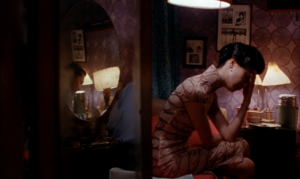To say Australian cinemas have been on life support during COVID-19 would be to imply that someone was looking after them. While that may have been the case for the local production industry, cinema operators have been left to bleed – and bleed they have, especially in Victoria (long considered the jewel of the Australian theatrical sector), where cinemas were shut down between late March and early November, with only a week’s reprieve in June. In other states, cinemas have been limping along, with socially distanced limited seating capacity and a shortage of lucrative blockbusters to lure cautious viewers out from their living rooms. In 2019, the total box-office return for Australia’s 524 cinemas (2310 screens) was A$1.23 billion; at the time of writing, in mid November, the figure for 2020 looks likely to be less than A$300 million, falling well short of 25 per cent of last year’s takings.
So far, the exhibition sector has received no direct government assistance, though many employees have had access to JobKeeper, and operators have been privately renegotiating their rents. But those renegotiations leave them in piles of debt to be paid back sooner rather than later. If there’s no assistance forthcoming – and all exhibitors are calling for it, urgently – and if the end-of-year moviegoing period hasn’t delivered solid figures, then many Australia cinema operators, especially the little ones, will be shutting their red curtains for good.
Independent Cinemas Australia (ICA) represents over 700 screens in Australia and New Zealand. These include large chains like Palace and Dendy, but 60 per cent of their members are small, with one to three screen sites, including those precious regional and country picture houses serving communities outside the big smoke. In a recent sustainability survey, the industry association found that 87 per cent of its members were struggling to cover operating expenses, and that 50 per cent expected to be permanently closed at the end of six months if pandemic-related closures continued.
Worldwide, 2020 was a disastrous year for exhibitors. Across the globe, shutdowns have kept audiences, who were already dwindling, locked at home, becoming ever more dependent on their home-entertainment systems. Where cinemas have been allowed to open, at much-reduced capacity, the films available for exhibition have been decidedly niche and lacking in mass appeal.
Wanting to go out to a wide audience and earn back their massive production and marketing budgets, distributors have held back their vital tentpole titles. These are the drawcards that make cinemas viable by selling stacks of tickets and tons of popcorn (don’t forget that about 20 per cent of a cinema’s revenue comes from its candy bar). In some cases, those crowd-pleasing titles have gone straight to streaming services, as happened with Disney’s Mulan (Niki Caro, 2020) and Pixar’s Soul (Pete Docter, 2020), leaving cinema operators empty-handed and fretting about the growing trend.
In early October, the world’s second-biggest exhibition chain, Cineworld, announced plans to temporarily close its movie theatres in the US and the UK. This was the result of a combination of a fresh wave of virus-related lockdowns and the devastating rescheduling of cinemas’ big hope for the year, James Bond film No Time to Die (Cary Joji Fukunaga), which was pushed back from November to April.
Many cinema owners around the world would have been crying about that one, including AMC, which owns the largest theatre chain in the United States (and the world as a whole), and has been in serious financial trouble since the virus first hit. In October, the company announced its cash reserves could be depleted by the end of the year. When bankruptcy looms for such a behemoth, the rest of the world’s screens are definitely in trouble.
Here in Australia, it seems at the time of writing that we may have the virus under control, and that we may even flock back to cinemas to escape the summer heat. Yet the perception remains that cinemas are highly dangerous and contagious places. In Victoria, they were among the last venues allowed to reopen, after restaurants, bars and gyms. ‘Basically, they are being lined up with brothels and nightclubs,’ lamented ICA CEO Adrianne Pecotic to screenhub in October.
This approach doesn’t make sense. Recent research published in open-source science journal Environment International (and cited often by the global cinema industry) suggests that, in terms of virus transmission, sitting quietly in a spaced-out cinema is one of the safest ways to gather with other people. A person is ninety times more likely to infect someone else while singing in a church, fourteen times more likely while talking in a restaurant and seven times more likely while exercising in a gym – all of which were previously permitted activities.
Village Entertainment, owner of one of the largest cinema chains in Australia, put it this way in their press-release plea to the Victorian Government:
Cinema provides an environment that allows for easy physical distancing, with easy contact tracing via online ticket purchasing. The passive and forward-facing nature of cinema allows for a safe environment that should be allowed to open.
Here’s one bright note to end on. To cover the lack of product available to cinemas over the final months of 2020, Sydney Film Festival’s (SFF) Travelling Film Festival partnered with ICA to present two curated programs of eleven features and four short films, all designed to attract audiences back to local theatres. Known as My Cinema, My Film Festival, it was organised to run in nineteen cinemas in metropolitan and regional New South Wales, Queensland, Western Australia, South Australia and the ACT across November and December. This was a seriously exciting program for film-starved cinephiles: opening with Stephen Maxwell Johnson’s Australian feature High Ground (2020), it also included Cannes Film Festival prize winner The Climb (Michael Angelo Covino, 2019) and the recipient of the 2020 Documentary Australia Foundation Award for Best Australian Documentary at SFF, Descent (Nays Baghai, 2020). It’s possible too that the glitch in the blockbuster pipeline may have granted more space to a couple of other Australian feature films that were scheduled for release in January: The Dry (Robert Connolly, 2021) and Penguin Bloom (Glendyn Ivin, 2020).





